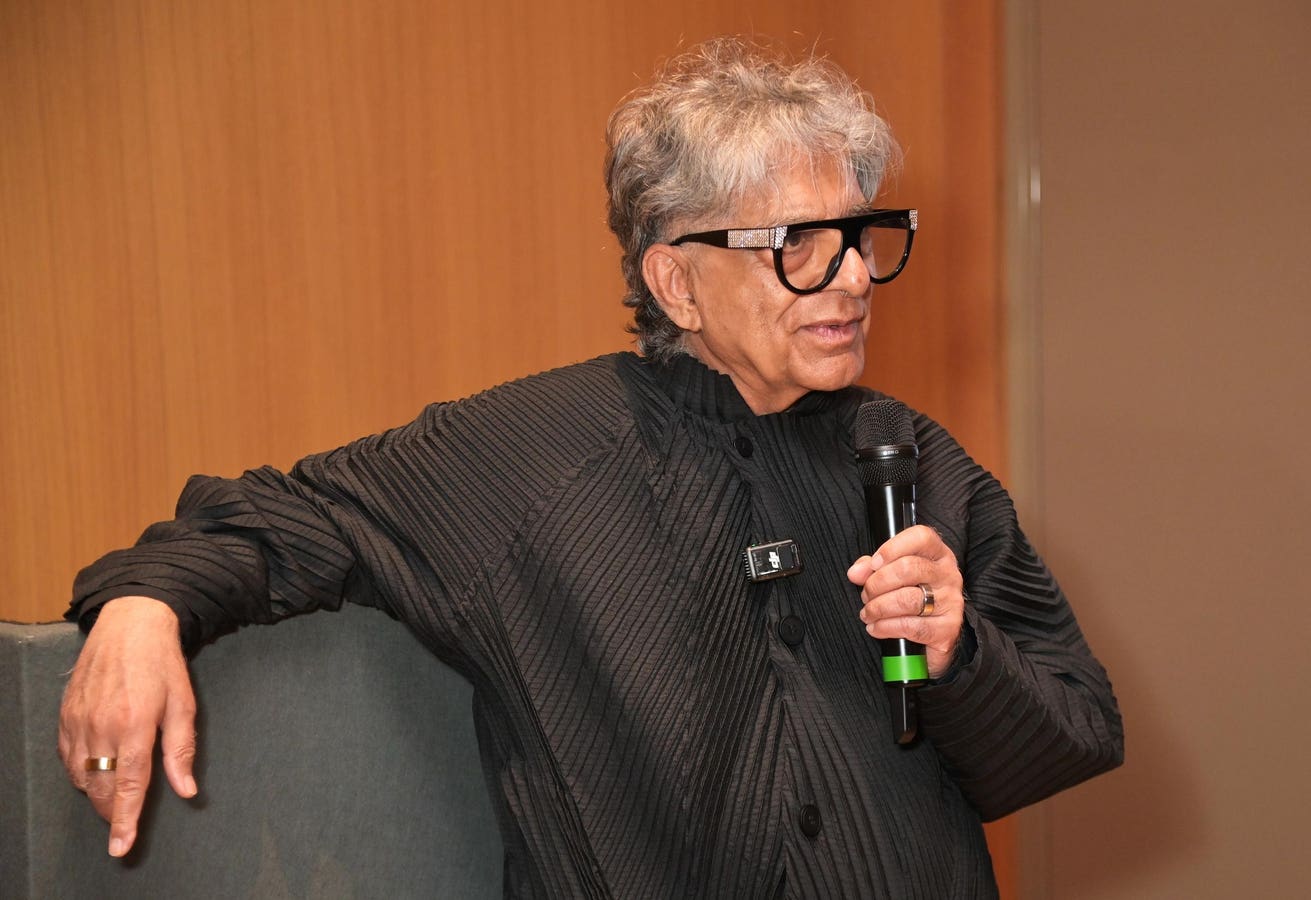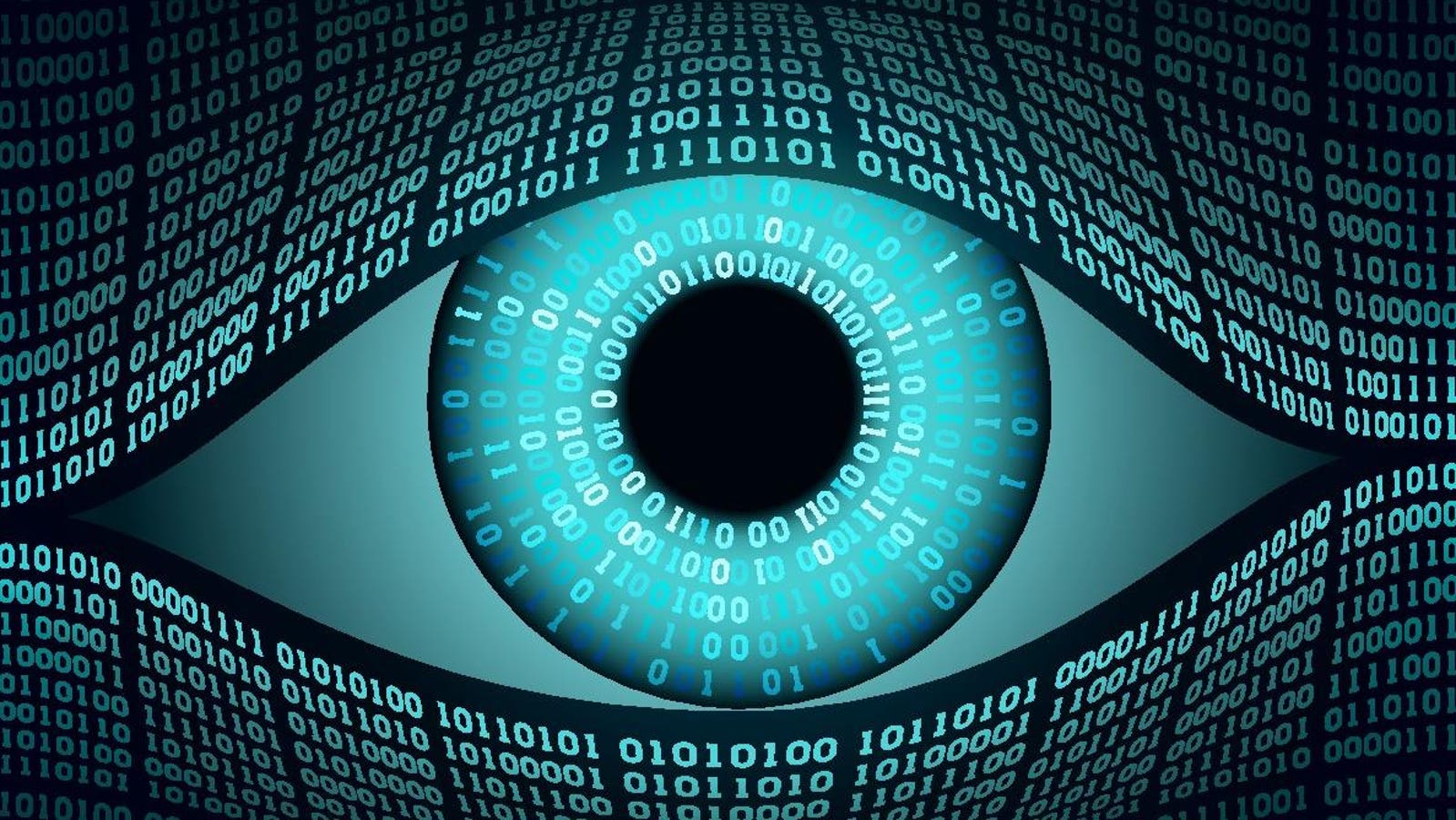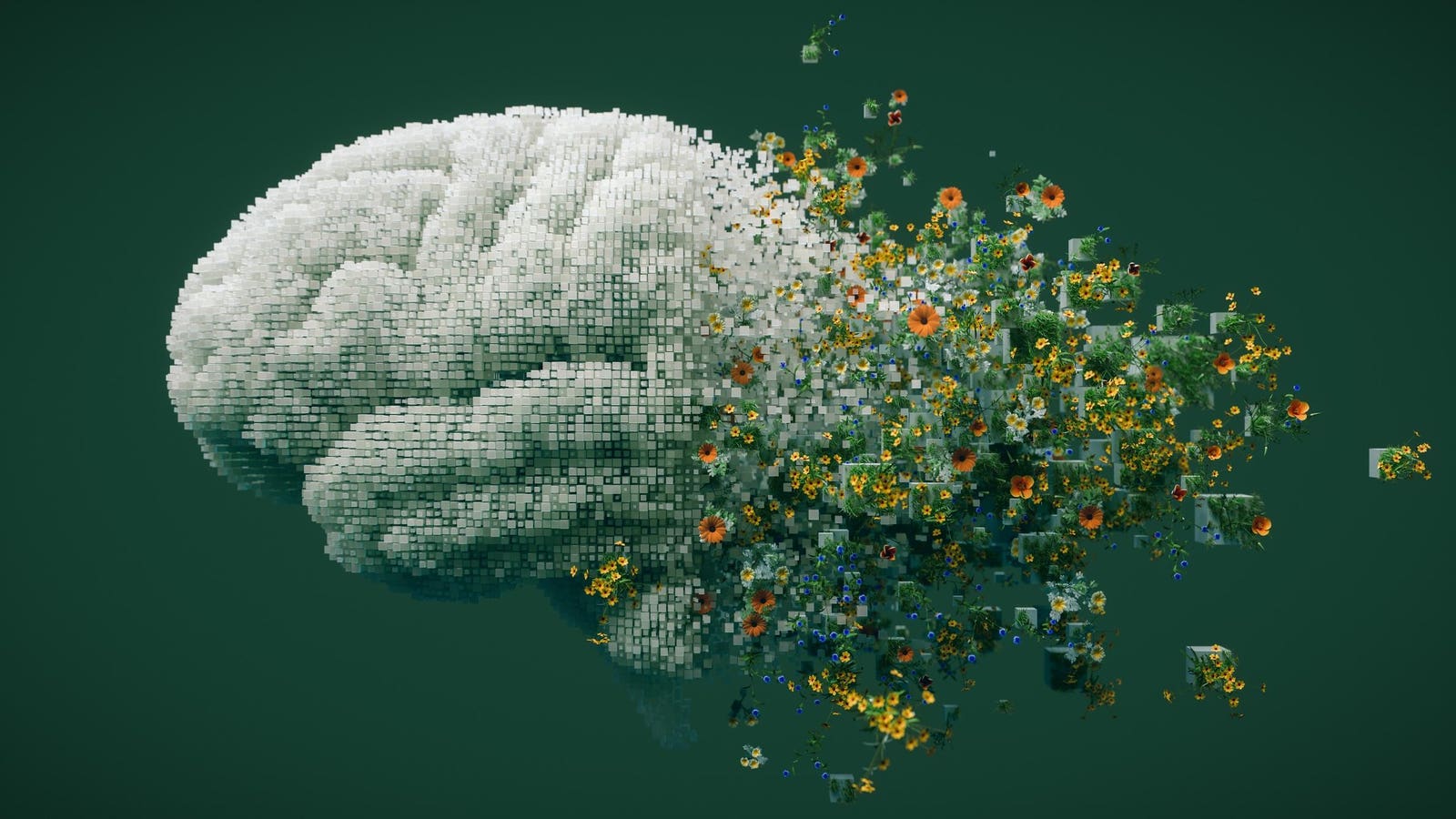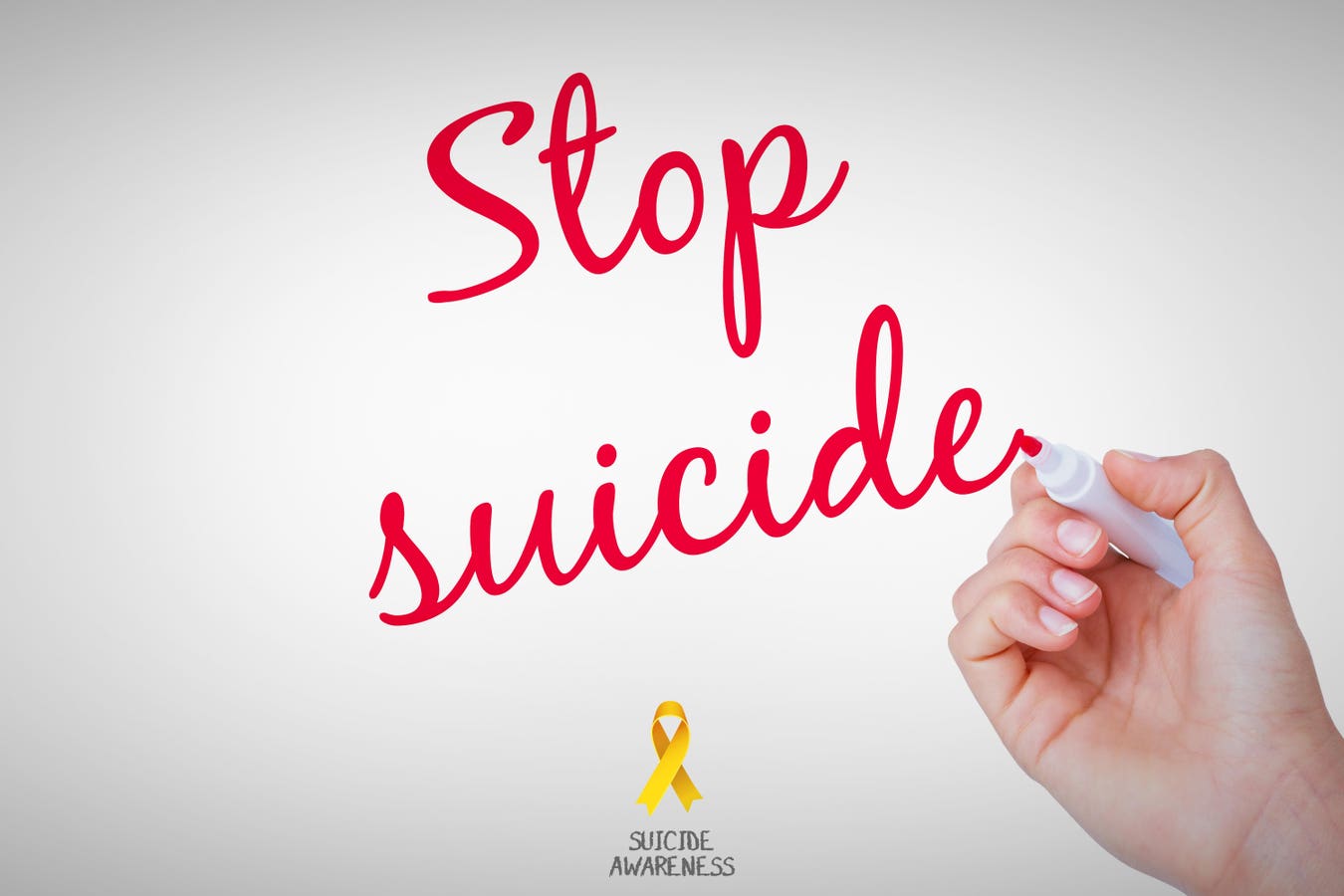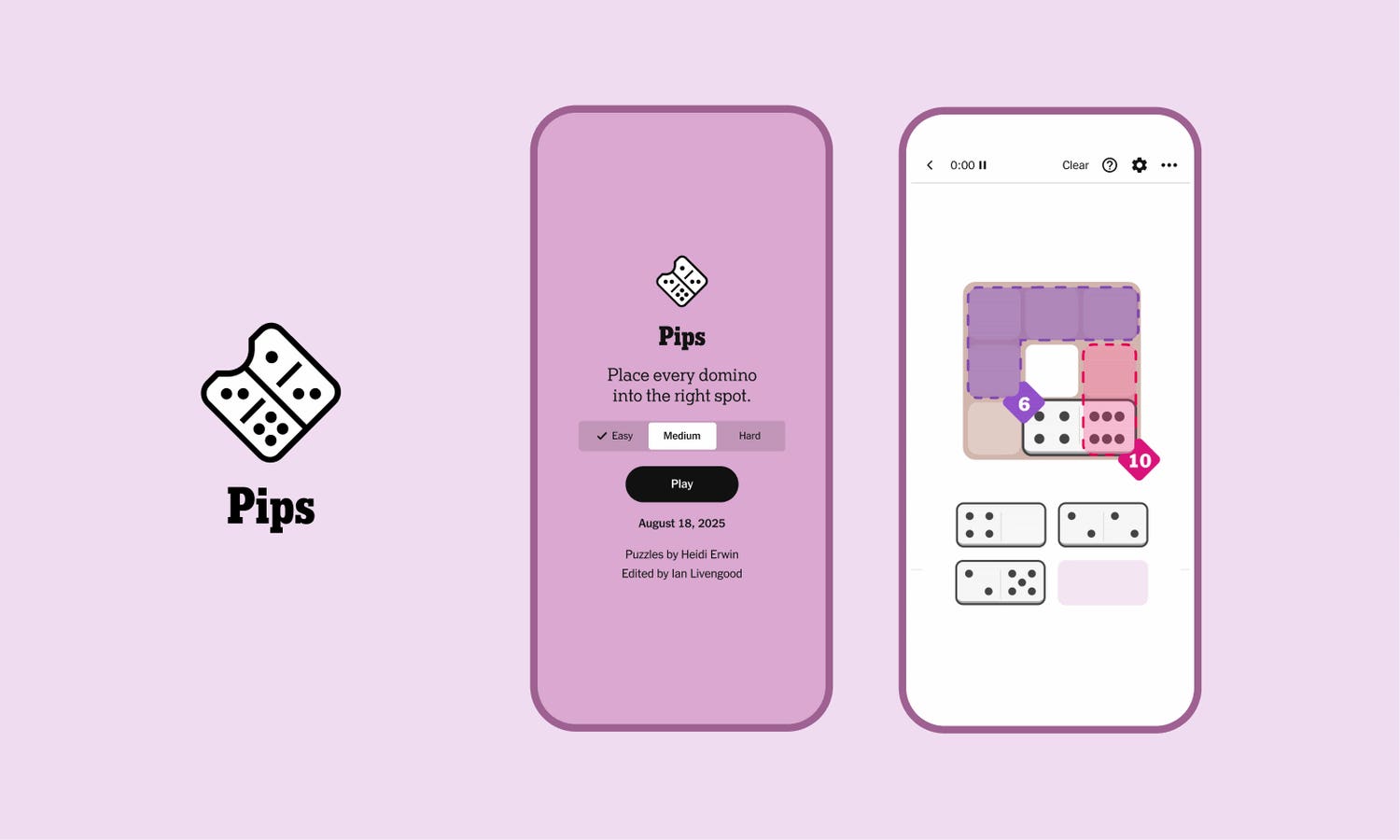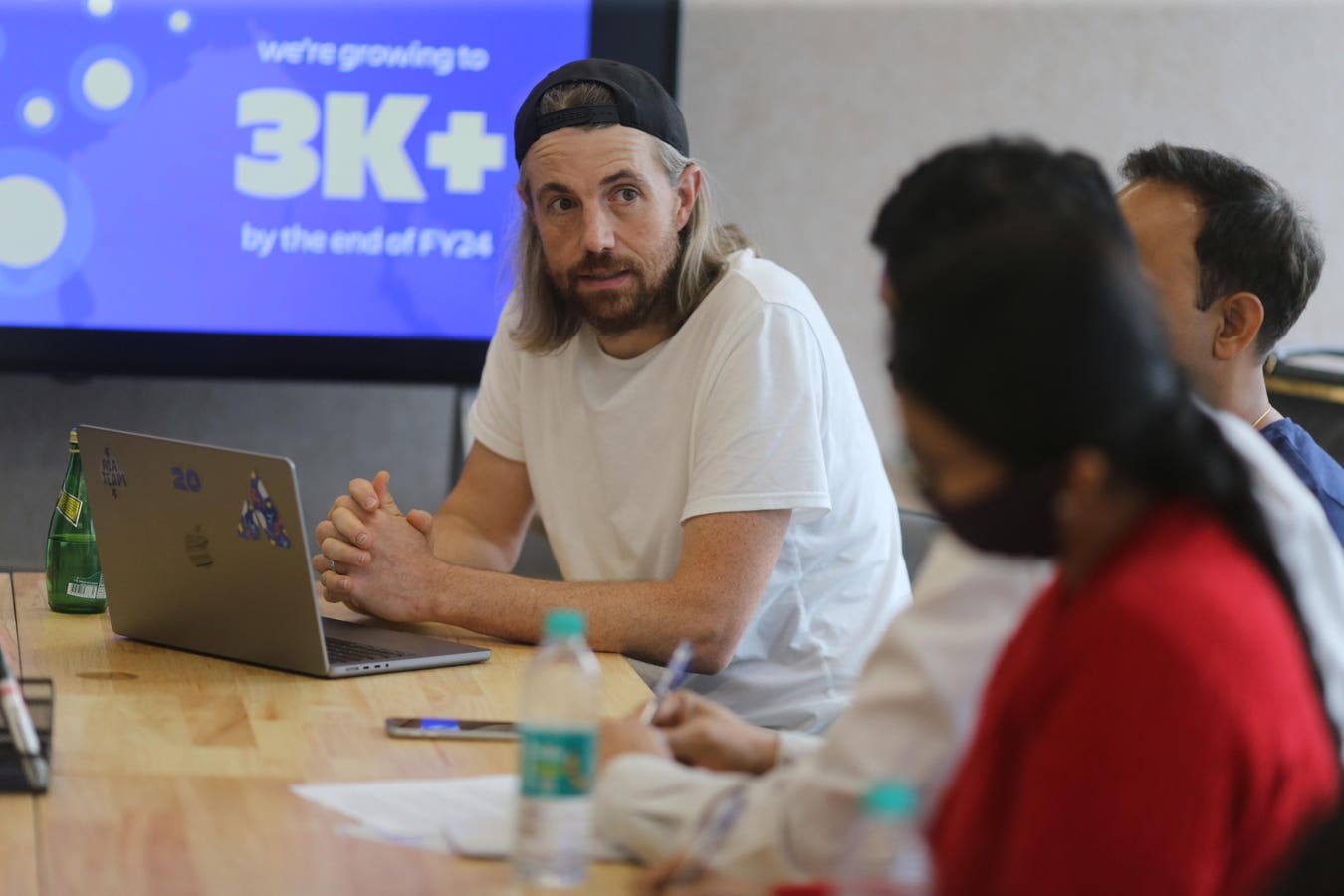Dr. Deepak Chopra recently spoke at the 2025 Games for Change festival in New York City and talked … More
Gaming can have way more than a pair of health benefits, especially if it can activate your parasympathetic system. That was one of the big takeaways from my recent conversation with author and mind-body medicine pioneer Deepak Chopra, MD, at the 2025 edition of the annual Games for Change or G4C Festival in New York City. He and Poonacha Machaiah, CEO of The Chopra Foundation, had given a keynote at the festival, talking about how intentional game design and AI-driven tools can foster emotional resilience, empathy, and mental wellness within gaming communities. In fact, they themselves have been getting into the game of gaming with the quest game Deepak Chopra: Meditation Oasis.
Chopra Warns About Being In Sympathetic Overdrive
You could say that Chopra and Machaiah are sympathetic to what’s going on in society right now. “Many people are in sympathetic overdrive with too much adrenaline,” explained Chopra. “This weakens the immune system.” Sympathetic overdrive means that your sympathetic nervous system is firing way too often and way too much. And that’s not a good thing
Your sympathetic nervous system is the part of your autonomic nervous system that’s designed to help you deal with dangerous or otherwise stressful situation. So, say a tiger or someone trying to give you a fruitcake as a gift is chasing after you. This is where you could benefit from having your “fight-or-flight” response activated. Such a response can include firing the nerves that enlarge your pupils to help you see better, increase your heart rate and blood pressure to more get blood and oxygen to your muscles, open up your airways to bring more oxygen into your lungs, trigger your liver to release more glucose to provide more energy and rev up your immune to enact repairs when needed.
At the same time, your sympathetic nervous system can suppress less urgent functions that may otherwise distract from your fight or flight and consume needed energy. So your sympathetic response may slow your digestion, keep you from urinating and pooping and hold any sexual excitement at bay. After all, you probably don’t want to be eating a pizza, pooping and feeling all hot and bothered while for example your boss is yelling at you.
Although your sympathetic system can provide kind of important benefits such as, oh, keeping you alive, it shouldn’t be activated and firing all the time. That would be like running the fire alarm and sprinkler system in your building constantly. Over time, things like your immune system and various parts of your body can get worn down and out, leading to damage and malfunctions. This is why a therapist won’t typically say, “You really should be worried about everything all the time.”
Play Puzzles & Games on Forbes
The trouble is so many things in our society these days are potentially activating your sympathetic nervous system each and every moment. The constant stream of advertising. The loud noises at the ballpark and at bars. The politicians and other talking heads telling you repeatedly about how such-and-such people are a threat. The constantly chatter on social media. And your smartphone. Your pay-attention-to-me-all-the-time smartphone. All of these may be keeping you in sympathetic overdrive.
Who knows then how much sympathetic overdrive may be contributing to many of the mind and body ailments that are pervasive in society these days. I’ve already written in Forbes about how the U.S. and other countries are steeped in mental health crises. Machaiah quoted the World Health Organization statistic that every 40 seconds someone dies from suicide and emphasized, “There are not enough therapists to deal with all the mental health issues.” All of this may be contributing further to the rising social divisiveness and physical ailments such as obesity seen in the U.S. and other countries.
Chopra Suggests Activating Your Parasympathetic System More
You do have a natural counter to your sympathetic nervous system. And that’s your parasympathetic nervous system, which is another part of your autonomic nervous system that serves the “rest and digest” or “feed and breed” functions.
It basically does the opposite of what the sympathetic nervous system does. For example, it can activate the nerves to constrict your pupils to reduce the amount of light entering your eyes, stimulate your mouth to provide more saliva, tighten your airway muscles so that your lungs don’t have to work as hard to breath while your rest, lower how fast and hard your heart pumps to conserve energy and release insulin to then decrease your blood sugar levels.
Meanwhile, your parasympathetic nervous system can focus more on helping you do fun stuff like digest food, pee and poop. Speaking of fun, let’s talk about sex. You can thank your parasympathetic system for the erections that your penis gets or when your vagina gets all naturally lubricated, depending of which you happen to have.
“To deal with sympathetic overdrive, you want to activate the parasympathetic nervous system more,” Chopra emphasized. “You want to keep people more in a parasympathetic state to optimize the endocrine system.” He mentioned different neurotransmitters and hormones that are integrated with these nervous systems such as acetylcholine, cholecystokinin, somatostatin and one that you may have heard lately, glucagon-like peptide-1 or GLP-1, that regulate all sorts of bodily functions including appetite and hunger. Therefore, when the sympathetic versus parasympathetic balance is off, all sorts of things in your mind and body can be adversely affected.
Chopra Emphasizes More Interoceptive Awareness
How then do you stay more in a parasympathetic state with all this sympathetic activation stuff around you? Chopra spoke of having “more mindful awareness” and more “interoceptive awareness.” Interoceptive awareness is perceiving the sensations from within your body like knowing what your mind and body are doing. For example, you are aware of how you are feeling, what your emotions are at the time, how hungry you may be, what your heart rate is doing, how different parts of your body are functioning and when you need to use the bathroom. While you may typically be aware of when you need to use the bathroom since the consequences of not knowing are, shall we say, obvious, you may not be quite as attuned to the other stuff.
Chopra pointed out how interoceptive awareness is one of the eight limbs of yoga that were originally laid out by Pantanjali, the first author of yoga. “The first two limbs are social and emotional intelligence,” Chopra explained. “The third is postures, the fourth breathing, the fifth interoceptive awareness, the sixth focused awareness, the seventh meditation and the eight transcendence.” He added that having interoceptive awareness is important because if you can perceive what’s happening inside your mind and body, you will then know how to control your mind and body such as the autonomic nervous system. Yoga is just one example of a mindfulness practice that can help achieve interoceptive awareness. Chopra is well known for spending much of his career developing, teaching, writing about and disseminating such practices.
Chopra Sees Gaming As An Opportunity To Counter Sympathetic Overdrive
Poonacha Machaiah (L), the CEO of The Chopra Foundation, seen here with Dr. Deepak Chopra on October … More
Gaming could be a game-changer when it comes to disseminating ways for people to achieve more interoceptive awareness and spend more time in the parasympathetic state. “You can achieve more mindful awareness through imagination,” said Chopra. “How to activate the parasympathetic nervous system for more homeostasis and optimize neuroendocrine function can be a focus of gaming.” Machaiah spoke of how people can feel more relaxed when in a “gaming state,” sort of how athletes can feel more relaxed and in a state of flow while playing a a sport, artists while painting, writers while writing and anyone else while they are doing something that they truly enjoy.
Of course, a try-to-shoot-as-many-things-as-possible-while-you-dodge-zombie-MMA-fighters game may not necessarily be the best way to activate your parasympathetic system. Chopra distinguished between games that create stress and games that expand the mind. Both Chopra and Machaiah urged the importance of taking the design of a game and making it more conscious. In other words, it can help for game designers to be more deliberate about creating or adapting games so that they can better help people, which is the big focus of the Games for Change or G4C initiative that Susanna Pollack has been leading since 2015 as its President.
I’ve covered previous G4C festivals such as the one in 2023 and talked to Pollack on a number of occasions about the difference between perception and reality when it comes to gaming and the gaming community. Pollack indicated how gaming has had the rather unfair stereotype amongst those not in the know of being “a waste of time.” G4C and its annual festivals have been working to change that perception. She’s pointed out the many positive aspects of gaming and the gaming community such as how the community is “more open to sharing than many other communities” and in many cases has come together to help each other and others. So with a need for more mental health interventions, gaming could play a major role.
One way gaming may have “meta” such needs and can do more to meet such needs is through what Machaiah called “Metaceuticals.” He described this as the use of gaming and the metaverse, such as virtual reality, to help achieve well-being. With VR, you can place yourself in tailored surroundings or even a new world that can allow you to relax and more safely explore your feelings and sensations and in turn better understand and control how you feel.
Deepak Chopra: Meditation Oasis Is One Example Of Such A Game
Chopra has already worked on a game called Deepak Chopra: Meditation Oasis. In fact, he literally works on the game. His voice is part of the game, including its signature cadence and balance. Machaiah described how this can put the gamer in a more relaxed state. He also covered how they “used other aspects of acoustic design and changed the lights, colors and flicker rate” to help keep users more “in a parasympathetic state.”
The game has users go through different meditaion quests, each of which may last different durations, typically one minute, three minutes or five minutes. “There’s already been over 100,000 quests completed,” said Machaiah. He pointed to the possibility of such games reaching more people quicker than mental health professionals and mindfulness experts can on there own.
Gaming Has Tremendous Potential For Further Positive Change
Amir Dossal, the President & CEO of the Global Partnerships Forum who was with the United Nations … More
All of this is just the tip of the virtual iceberg. Amir Dossal, the founder and president of the Global Partnerships Forum who spent 25 years at the United Nations where he previously led the UN Office for Partnerships, is excited about the possibilities. He sees gaming as a way to help address the UN’s third sustainable development goal: to ensure healthy lives and promote well-being for all at all ages.
“The question is how to bring peace in difficult times,” Dossal said. “Well, mental health is a precursor.” He went on to say, “Gaming is the most intimate experience” and talked about how “games can bring people together to address mental health” as well as the coalitions and working groups that are already trying to do this. “We’ve been looking for and working with early adopters who see the value.” Dossal added, “Gaming is not about a game where the focus is winning or losing. Instead it’s about play.”
This is a key distinction. Many people out there continue to push the zero-sum game idea that life is about competition and either being a winner or a loser. Or being part of some “winning group” rather than some other “losing groups.” That if you don’t quickly claim something as yours other people will claim it as theirs. That other people’s success is your failure and vice-versa. Well, not being more sympathetic and empathetic to others could leave your sympathetic nervous system further on overdrive. And that may not be a good game to play for you and your health.

